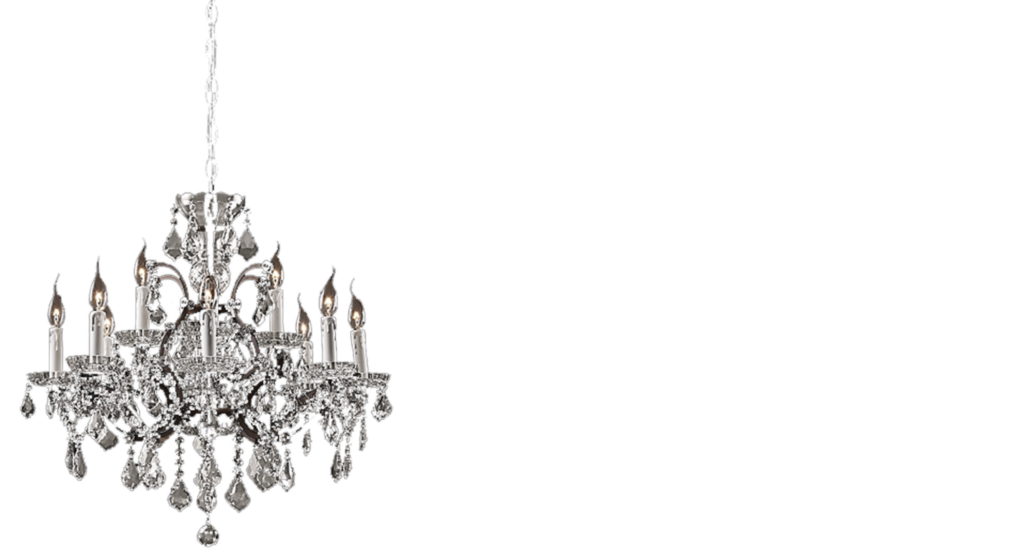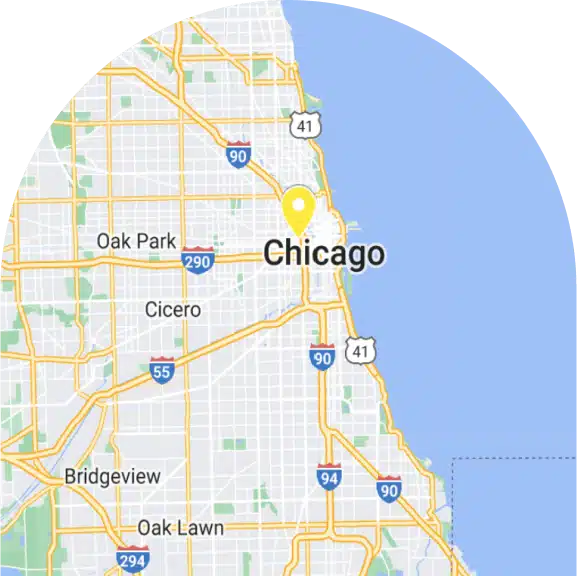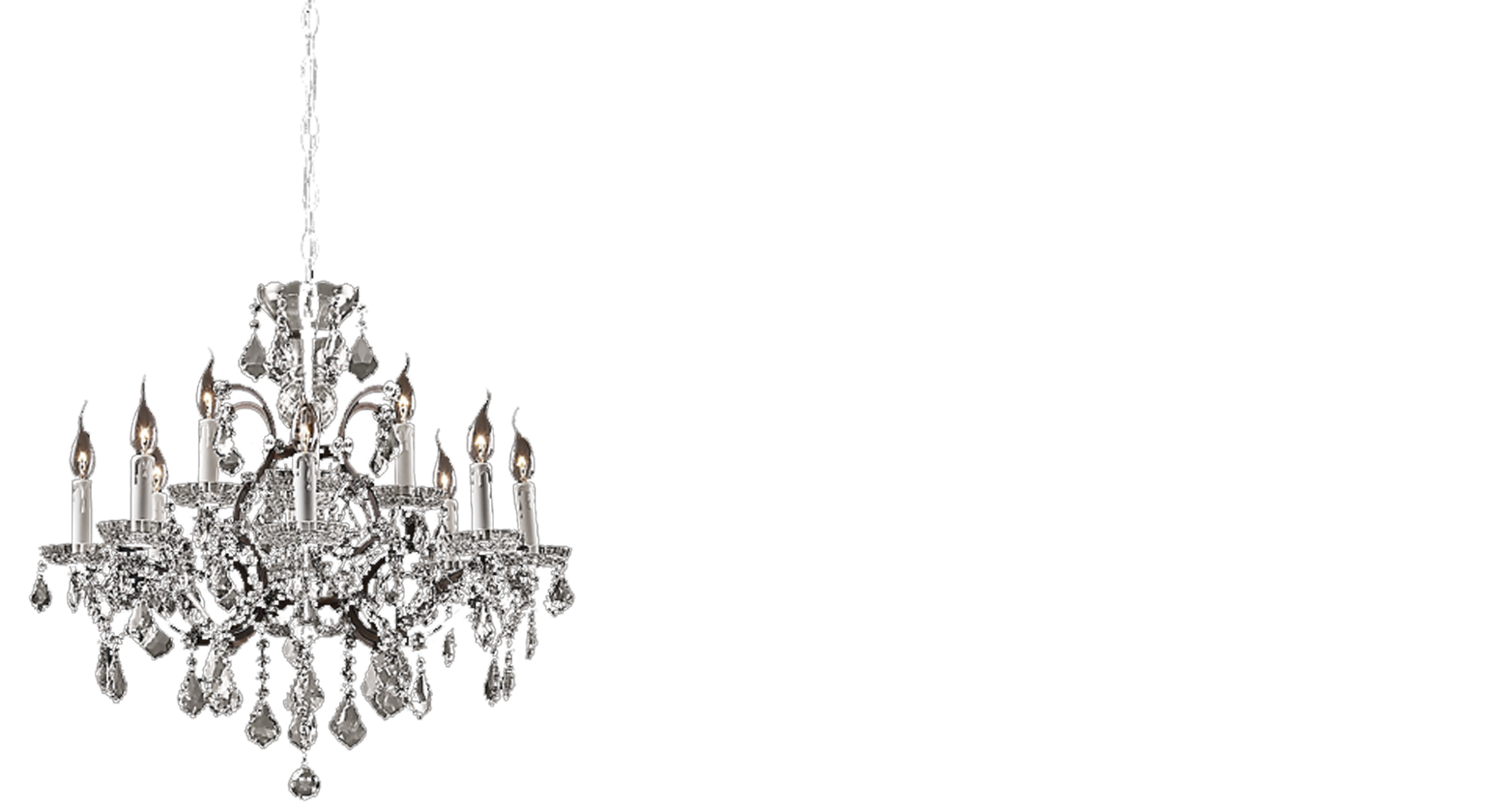TMS Therapy in Chicago
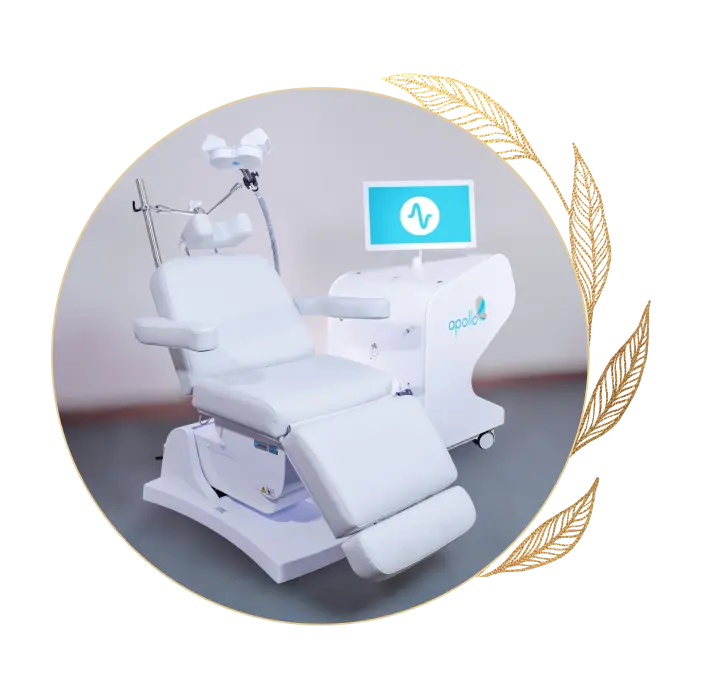
- Home
- Psychiatry Services
- TMS Therapy in Chicago
Dr. Dees recently appeared on the SHE MD Podcast to discuss how EXOMIND TMS Therapy is transforming women’s mental wellness.
She shared how this advanced, noninvasive treatment helps women manage anxiety, depression, postpartum mood changes, and perimenopausal shifts—offering a gentle, medication-free approach to emotional balance.
Transcranial magnetic stimulation (TMS) was introduced in 1985 as a neurodiagnostic tool for brain stimulation. Since then, it has been used in trials, especially in the treatment of psychiatric disorders like depression. Many patients who do not respond to other treatments find relief from the symptoms of depression through TMS therapy.
Depression is a significant issue affecting people from all walks of life across the United States. Research indicates that depression is the leading cause of disability in the nation. However, it often improves with treatment. The primary treatment for Clinical Depression is a combination of antidepressants and psychotherapy. However, some people with stubborn symptoms have what’s called Treatment-Resistant Depression (TRD).
If you have been struggling with major depressive disorder, schedule a TMS therapy session at Luxury Psychiatry Clinic today and get help.
TMS is FDA approved to treat obsessive-compulsive disorder (OCD)*
What Is Transcranial Magnetic Stimulation (TMS)?
Transcranial magnetic stimulation (TMS) is a groundbreaking, non-invasive treatment for various mental health conditions, especially depression. Utilizing magnetic fields, TMS stimulates nerve cells in the brain to improve symptoms of mental health disorders. This technique is particularly beneficial for patients who do not respond to conventional treatments, such as medication and psychotherapy.
But TMS could also be used if the patient experiences adverse side effects from antidepressant medications. TMS treatment can help this population as they are more prone to developing severe side effects from using antidepressants. TMS therapy can be performed in different ways. The method depends on the magnet strength, pulse patterns, magnetic coil type, and pulse frequency.
At Luxury Psychiatry Clinic, we specialize in TMS therapy in Chicago, offering cutting-edge treatment for individuals struggling with depression. Our experienced team, led by Dr. Michelle Dees, ensures each patient receives personalized care tailored to their unique needs. If you have major depressive disorder and haven’t found relief with other treatments, consider scheduling a TMS therapy session with us today.
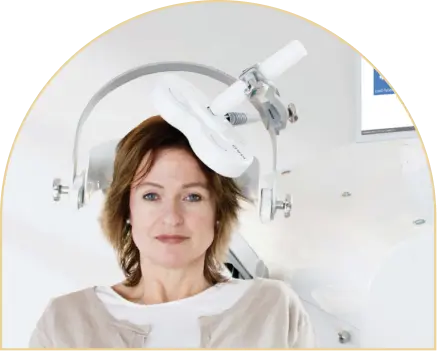
How Does TMS Work?
A look at the brain of a depressed person shows inactivity in the depressed areas. TMS therapy uses magnetic pulses to target those depressed parts of the brain and stimulate them. Effectively, this breaks the cycle of depression, leading to improved mood.
A technician or physician performs TMS therapy on the patient. During treatment, the therapist places a magnetic coil on the scalp, which delivers the magnetic pulse. The patient must wear earplugs (to reduce the sound of magnetic impulses) before the technician commences treatment.
Once the session is done, the patient can drive back home and continue with their normal daily activities. Generally, it is an intensive treatment that requires consistency. Usually, a patient attends sessions five days a week for several weeks. Each session lasts for under an hour, usually 20-50 minutes.
How to Prepare for TMS
Before starting TMS treatment, patients undergo a thorough physical and psychiatric evaluation to ensure they are suitable candidates. During the assessment, it is crucial to inform the physician if you:
- Are taking medication
- Have other mental disorders
- Are pregnant
- Have a history of seizures
- Have had TMS treatment before
- Have metal or implanted medical devices
Understanding your insurance coverage for TMS therapy is also essential for planning your treatment. At Luxury Psychiatry Clinic, we strive to make the insurance process as smooth as possible for our patients. Most insurance companies recognize the effectiveness of TMS therapy for treatment-resistant depression and provide coverage for it. However, others do not, so it is good to be sure that the treatment is covered before getting started. Most insurance companies will help cover the cost of your Advanced Therapy TMS consultation. Find out more by contacting our TMS treatment center today.
What Can TMS Treat?
Transcranial magnetic stimulation (TMS) is an innovative, FDA-approved mental health treatment that uses magnetic pulses to stimulate specific areas of the brain. At Luxury Psychiatry Clinic in Chicago, our TMS therapy offers a non-invasive option for patients struggling with a variety of conditions, especially when traditional treatments like antidepressant medications and talk therapy have not provided relief. Whether you’re dealing with major depressive disorder, obsessive-compulsive disorder, or trauma-related symptoms, our TMS treatment sessions are designed to support your well-being and provide new treatment options.
TMS therapy is most commonly used to treat depression, particularly treatment-resistant depression and major depressive disorder (MDD). By targeting parts of the brain that regulate mood, magnetic pulses can help improve symptoms of depression without the systemic side effects associated with antidepressant medications. Many patients in Illinois who have not responded to traditional treatments like medication management or electroconvulsive therapy are finding new hope through outpatient treatment with TMS.
Luxury Psychiatry Clinic also uses TMS to treat obsessive-compulsive disorder (OCD). By focusing on areas of the brain involved in obsessive thoughts and compulsive behaviors, TMS can reduce symptoms without the need for more medications. For many patients in Chicago struggling with OCD, TMS treatment offers a safe, non-invasive way to regain control and enhance overall mental health.
Emerging research shows that transcranial magnetic stimulation may also help reduce symptoms of anxiety. By calming overactive parts of the brain, TMS therapy can help patients manage chronic anxiety without the typical side effects of medication. Patients who experience anxiety along with depression often find TMS to be a highly effective part of their overall treatment plan.
Post-traumatic stress disorder (PTSD) is another condition that can benefit from TMS therapy. By targeting neurological pathways involved in fear and memory, TMS can reduce intrusive symptoms and improve emotional regulation. For patients in Chicago living with PTSD, TMS offers an accessible, outpatient treatment option that promotes healing and restores well-being.
Unresolved trauma can deeply affect mental health, often leading to conditions like depression, anxiety, or PTSD. TMS treatment at Luxury Psychiatry Clinic is designed to help patients process traumatic experiences by stimulating the areas of the brain responsible for mood and emotional regulation. Through carefully structured treatment sessions, we help patients move forward and regain a sense of stability and peace.
Although still considered an emerging use, TMS therapy has shown promise in helping patients with ADHD. By targeting parts of the brain involved in attention regulation and impulse control, transcranial magnetic stimulation may help improve focus, reduce hyperactivity, and enhance overall executive function. For patients in Chicago seeking alternative treatment options beyond medication, TMS offers a neurological approach that supports lasting improvements in mental health and well-being.
Benefits of TMS for Treatment-Resistant Depression
TMS is an effective therapy for treatment-resistant depression for several reasons. Patients who have tried and failed other treatments or those who experience adverse side effects from antidepressants prefer TMS. The patients are the ideal candidate for TMS treatment.
Some of the benefits of TMS therapy include the following:
Treatment targets the part of the brain responsible for controlling moods. This is unlike antidepressants which affect the entire body after entering the bloodstream.
Treatment does not require sedation. It is administered on the skin and has no adverse effect on the brain so that patients can carry on with their daily activities between sessions.
TMS has mild side effects, which go away in no time. The most severe side effect would be a seizure, but they are pretty insignificant.
TMS has proven effective treatment for depression, especially in patients who do not respond to the standard treatment approaches.
Patients can also undergo traditional psychotherapy alongside TMS. This helps keep repeat symptoms away, further enhancing the treatment’s effectiveness. Furthermore, unlike with antidepressant medications, patients undergoing TMS can also retain the motivation necessary to participate in their normal activities.
What Happens During TMS?
At Luxury Psychiatry Clinic in Chicago, our TMS therapy process is carefully designed to prioritize your mental health and comfort. After an initial evaluation with one of our licensed psychiatry providers, a trained TMS technician will oversee your ongoing TMS treatment sessions under medical supervision.
A typical TMS therapy session:
- Lasts about 20 minutes per treatment session;
- Is administered five days a week;
- Continues for approximately 6 to 8 weeks, depending on your treatment plan and individual needs.
During transcranial magnetic stimulation, you’ll remain fully awake while a specialized device delivers gentle magnetic pulses to targeted areas of the brain associated with mood regulation. This stimulation is designed to activate parts of the brain underactive in conditions like major depressive disorder, OCD, and treatment-resistant depression.
TMS is completely non-invasive and does not require anesthesia, making it very different from electroconvulsive therapy (ECT). Because there is no recovery time needed and side effects are minimal—usually just a mild headache in some cases—you can return to work, school, or your regular activities immediately after your treatment session.
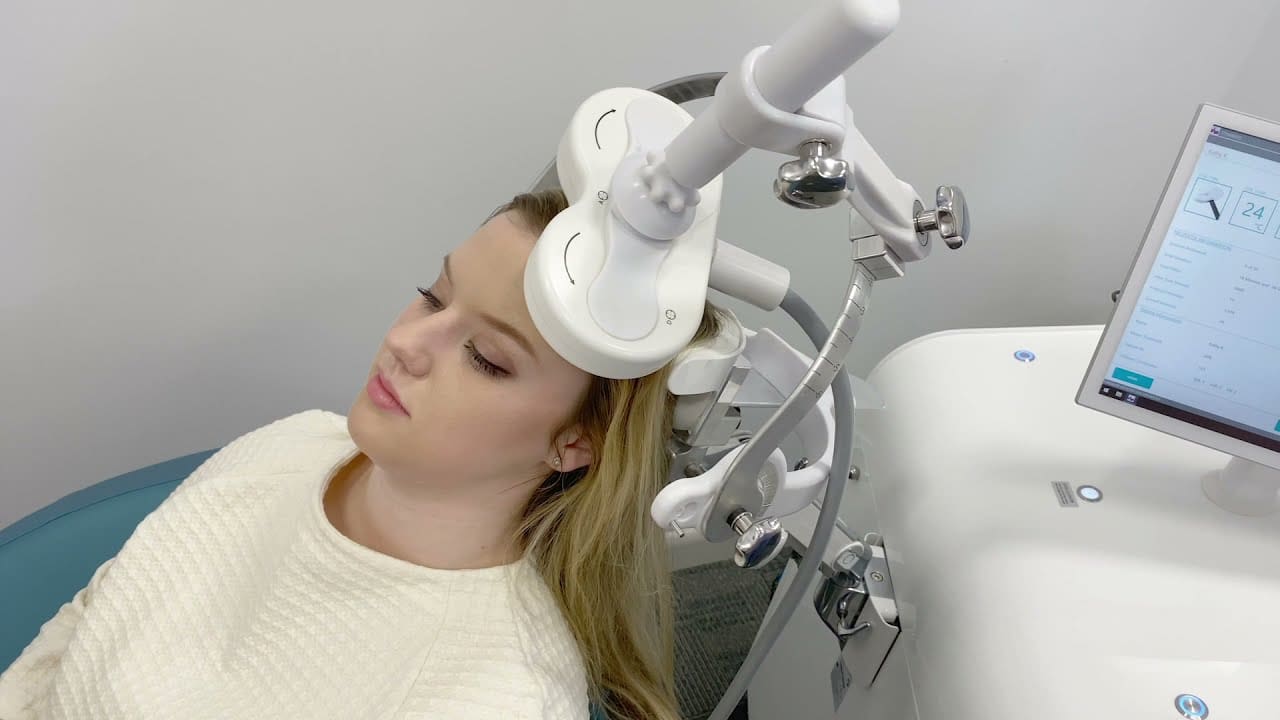
Is TMS Effective?
Transcranial Magnetic Stimulation (TMS) has demonstrated notable effectiveness in treating major depressive disorder (MDD), particularly among individuals who have not responded to traditional treatments. Approximately 50% to 60% of patients with treatment-resistant depression experience a significant improvement in their symptoms following TMS therapy, with about one-third achieving full remission. Furthermore, a systematic review and meta-analysis indicated that patients undergoing TMS as an adjunctive treatment were 2.25 times more likely to respond and 2.78 times more likely to achieve remission compared to those receiving standard pharmacotherapy alone.
TMS Therapy Cost & Insurance Options
At Luxury Psychiatry Clinic in Chicago, we believe that TMS therapy should be accessible to anyone who could benefit from it. The cost of TMS treatment can vary depending on the number of treatment sessions you need, but insurance often helps cover a significant portion of the expense. Most insurance providers cover TMS therapy when it is used to treat major depressive disorder (MDD) or treatment-resistant depression, provided you have not responded to traditional antidepressant medications and talk therapy. Some insurance plans may also cover TMS for obsessive-compulsive disorder (OCD) if specific criteria are met.
However, TMS is typically not covered by insurance for conditions like anxiety, PTSD, trauma, or ADHD at this time. While research is ongoing and promising, insurance providers often require more established FDA indications before approving coverage for other mental health conditions. At Luxury Psychiatry Clinic, our team can help with sourcing the necessary documentation and work directly with your insurance to verify your benefits. If TMS is not covered for your condition, we offer flexible payment plans to make this transformative outpatient treatment more accessible.
If you have questions about whether your insurance covers TMS therapy, don’t hesitate to reach out to us. Our staff is happy to walk you through your options and help you find the best path forward for your well-being.
Frequently Asked Questions (FAQ) for TMS
The success rate of TMS therapy can vary depending on the individual, the condition being treated, and other factors such as the duration of treatment and the intensity of the magnetic field used.
Generally, for depression, TMS has been effective in up to 50-60% of patients. For OCD and anxiety, success rates have been between 40-60%.
To qualify for TMS treatment, a person typically needs to have a DSM diagnosis of depression (F32 or F33) or another mental health condition that has not responded to other treatments, such as medication or psychotherapy.
The most common negative side effects of TMS are generally mild. However, these typically include headaches, scalp discomfort, and tingling of facial muscles. These symptoms usually subside within a few minutes to hours after treatment.
There are less common side effects, and these are dizziness, lightheadedness, or changes in overall mood. Finally, there is a small risk of seizures, although this side effect is incredibly rare.
A typical course of TMS treatment usually involves five sessions per week for four to six weeks, for a total of 20 to 30 sessions.
The duration of each session can also vary, but a typical TMS session lasts about 30 minutes. At Luxury Psychiatry Medical Spa, we can also supplement your TMS treatment with enlightening spa services.
Our Chicago TMS Therapy Location
Luxury Psychiatry Clinic proudly offers TMS therapy to patients across the entire Chicago metro area. Our office is conveniently located in the heart of West Loop, Chicago, making it easy to access high-quality mental health care close to home.
Schedule an Appointment for TMS Therapy Today
People with treatment-resistant depression may be reluctant to seek support. This is especially true after many failed attempts at treatment for depression. However, TMS therapy has been proven to be an effective treatment for depression.
If you have Treatment-Resistant Depression, visit Luxury Psychiatry Clinic in the Chicago area. We provide patients with TMS therapy and other services to improve their mental health. Our team of professionals is available to answer any questions. We provide support for patients at every stage of mental health recovery.
Contact us today to learn more about our treatment options and how we can help.
